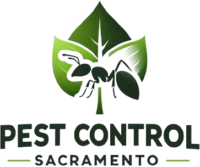Ever had a creepy crawler surprise you in your own home? It’s a real drag, and that’s why laws on pest control are super important. These rules keep the pest-busting game fair and safe for everyone. Government bodies lay down the law to make sure pest control pros play by the rules and protect us from the itchy, scratchy invaders. Knowing the ins and outs of these regulations is a must if you’re looking to keep your space bug-free without any legal hiccups.
So, here’s the skinny on pest control laws: They’re like a playbook for the pest control league, ensuring that every move to oust unwanted guests from your digs is legit. Sacramento Pest Control, your friendly neighborhood bug banishers, have been zapping pests for over three decades. These pros have seen it all, from bed bugs cozying up in your sheets to ants throwing a picnic in your pantry. They’ve got the know-how and the tricks up their sleeves to make sure those pests hit the road and don’t come back. And guess what? They do it all by the book, with a thumbs up from Uncle Sam.
Now, don’t you worry about getting left in the dust. We’re about to take a stroll down memory lane and check out the history of these pest control rules. It’s a tale of how folks decided that living with bugs just wasn’t their jam and how they got smart about kicking them to the curb. So, stick around, ’cause we’re about to lift the lid on the “Historical Context of Pest Control Legislation”. It’s not just about spraying and praying; there’s a whole saga behind those rules that keep your home bug-free and your mind at ease.
Historical Context of Pest Control Legislation
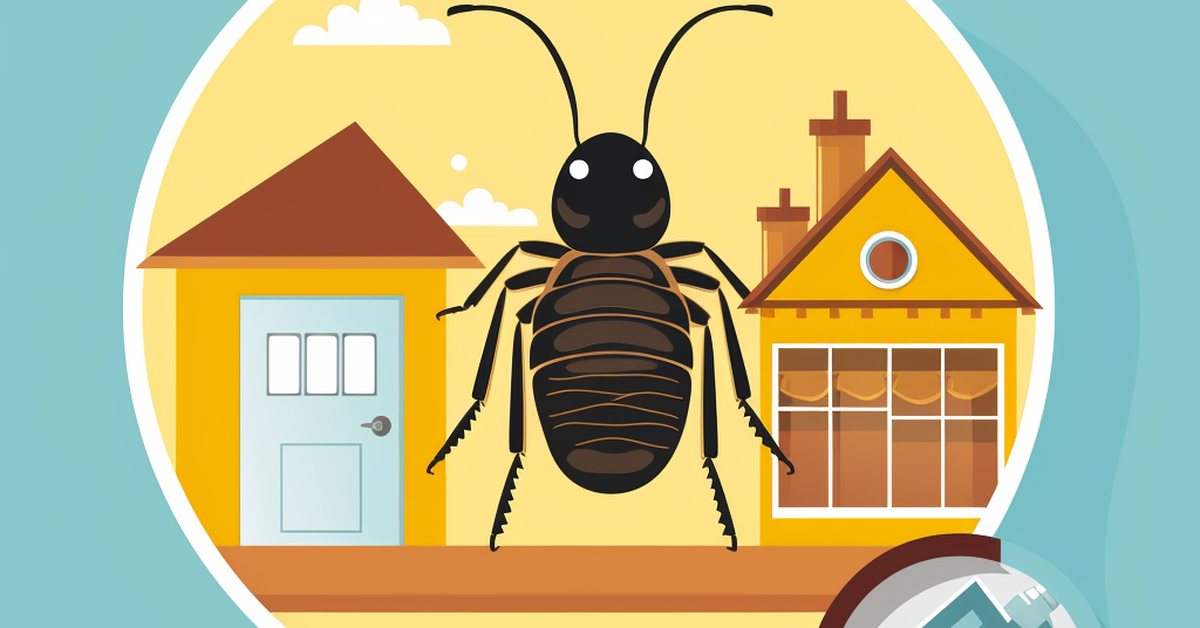
When you’re up against pesky critters in your home or business, you might wonder, “What rules do the bug busters follow?” Well, let’s clear up the air. Pest control isn’t just about getting rid of unwelcome guests; it’s about doing it safely and by the book. This means knowing the ABCs of pest control laws.
Evolution of Pest Control Laws
Pest control laws weren’t born yesterday. They’ve evolved like butterflies from cocoons. Back in the day, folks could use whatever they fancied to shoo pests away. But as we got wise to the fact that some of these methods were harmful to more than just bugs, laws came into play.
- How pest control laws have changed over time
- Significant legal cases and their impact on regulations
- International treaties affecting pest control
For instance, did you know the Federal Insecticide, Fungicide, and Rodenticide Act (FIFRA) reshaped the pest control scene? It said, “Hold your horses, you can’t just spray any old thing.” And this act keeps updating to stay on top of the game.
Key Regulatory Bodies and Their Roles
It’s not just one big cheese that calls the shots in pest control laws. It’s a whole platter of them. The Environmental Protection Agency (EPA) wears a big hat. They’re in charge of making sure the products used are on the up-and-up. Then you have the state departments, like a sheriff in a wild west movie, making sure their turf is under control.
- EPA and state departments of agriculture
- Local health departments and their jurisdiction
- Differences between federal, state, and local regulations
Each state can have its own twist on the rules. So in Sacramento, you’ve got local hotshots making sure your pest control is up to scratch.
Overview of Major Pest Control Acts
Alright, let’s lay down some knowledge on the big acts you should know about.
- Federal Insecticide, Fungicide, and Rodenticide Act (FIFRA)
- Food Quality Protection Act (FQPA)
- Other significant legislation and amendments
FIFRA is the granddaddy of them all, making sure that what’s used to zap those pests isn’t going to zap us too. The FQPA came along and said, “Let’s think about the kiddos,” putting extra safety measures in place.
So, what does this mean for your local pest wranglers at Sacramento Pest Prevention? Well, they’re not just some cowboys with bug spray. They’re certified sharpshooters who know the laws like the back of their hand.
And just when you think you’ve got it down, remember that rules can change faster than a roach when the lights come on. So it’s crucial to have a pest control partner who stays current.
Speaking of staying current, if you’re wrestling with a tick problem, check out their tick control solutions. They’re on point and in line with the latest legal requirements.
And let’s not forget the fines. If a company doesn’t follow the rules, they can get slapped with a hefty fine faster than you can say “ant infestation.” Just another reason to go with pros who play by the rules.
Now, imagine you’ve just cleared out a bunch of termites munching on your floorboards. You’re feeling good, but there’s more to it. There’s a need for a keen understanding of what keeps those critters in check, without stepping on the toes of the law. It’s a balance, like a tightrope walker in a circus act. Next up, we’ll tiptoe into the need for licenses and certifications in the pest control circus. Stay with me, and we’ll make sure those pests get the boot while keeping it all above board.
Licensing and Certification for Pest Control
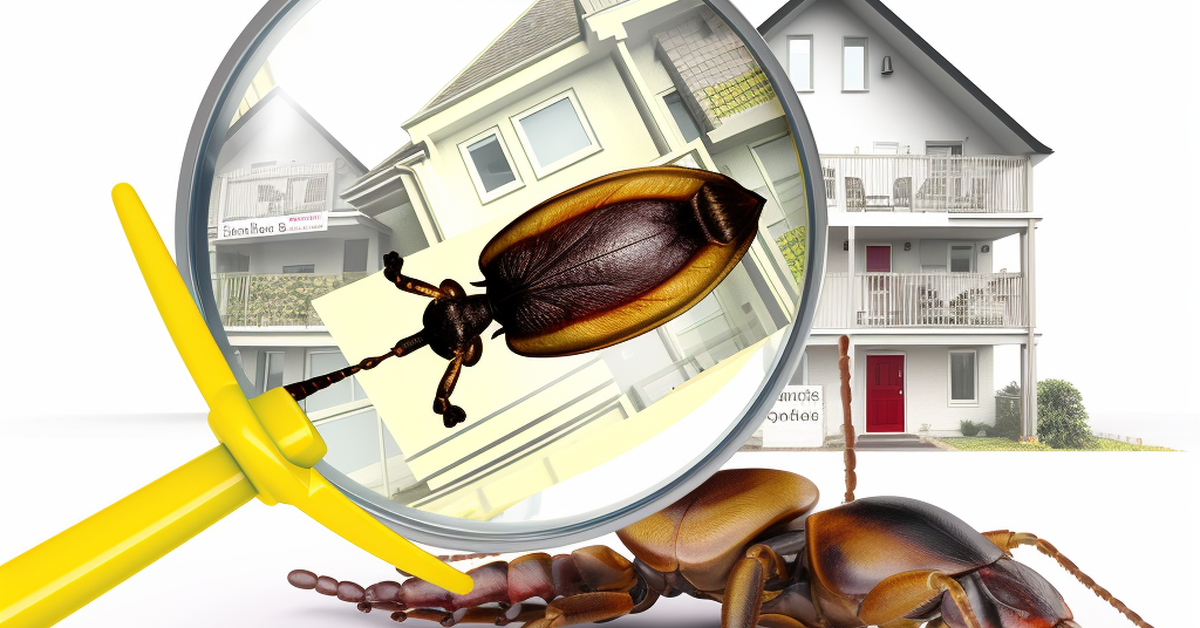
Got bugs? Sacramento Pest Control can help, but first, let’s talk rules. Pest control, it’s a job for the pros. And in this biz, you gotta play by the book.
Requirements for Pest Control Professionals
Sure thing, you need smarts to zap pests. Wanna be a pest pro? You’ll need:
- Licensing exams and some brainy refreshers
- Insurance so you’re covered if things get sticky
- Background checks ’cause trust is key
Imagine this: You’re in the pest fight, and you’ve got the badge to prove it.
Types of Pest Control Licenses
Pest control’s got more flavors than ice cream. Here’s the scoop:
- Commercial vs. private licenses – It’s all about who you’re serving
- Specialty licenses for those critters that need extra attention
- State-to-state deals so your skills travel with you
Say you’re the termite whisperer. There’s a license for that.
Maintaining License Compliance
Keep your pest-fighting license shiny:
- Renew on time. Don’t let that ticket to the pest control rodeo expire.
- Keep records straight. Every spray, every trap, jot it down.
- Play by the rules or you might just get benched.
Now, let’s swat some stats. Did you know, 75% of pest control pros renew their licenses without a hitch? Be part of that smart bunch.
Here’s a look at what happens if you’re not up to code:
| Consequence | Details |
|---|---|
| Fine | Your wallet feels lighter |
| Suspension | A forced time-out from pest zapping |
| Revocation | Say bye-bye to your pest-busting career |
Now, let’s link up with some legit info. For the real deal on pest legislation, check out these resources: Ohio’s pesticide laws, EPA’s guide to pesticides, and integrated pest management from USDA.
We’re not done yet. As we wrap up, let’s think about those pesky pesticides. We’ve talked law and order, but what about staying safe while we battle the bugs? It’s not just about slapping on the gloves and goggles. It’s making sure we’re not doing more harm than good. Stick with us, and we’ll keep you savvy on the safest ways to keep those critters at bay.
Remember, Sacramento Pest Control’s here for you. We’ve got the know-how and the license to prove it. And hey, if you need help or got a question, just give us a ring at (916) 520-8894 or check out our roach control service. We’re your hometown heroes in the world of pest control.
Safe Use of Pesticides and Chemicals
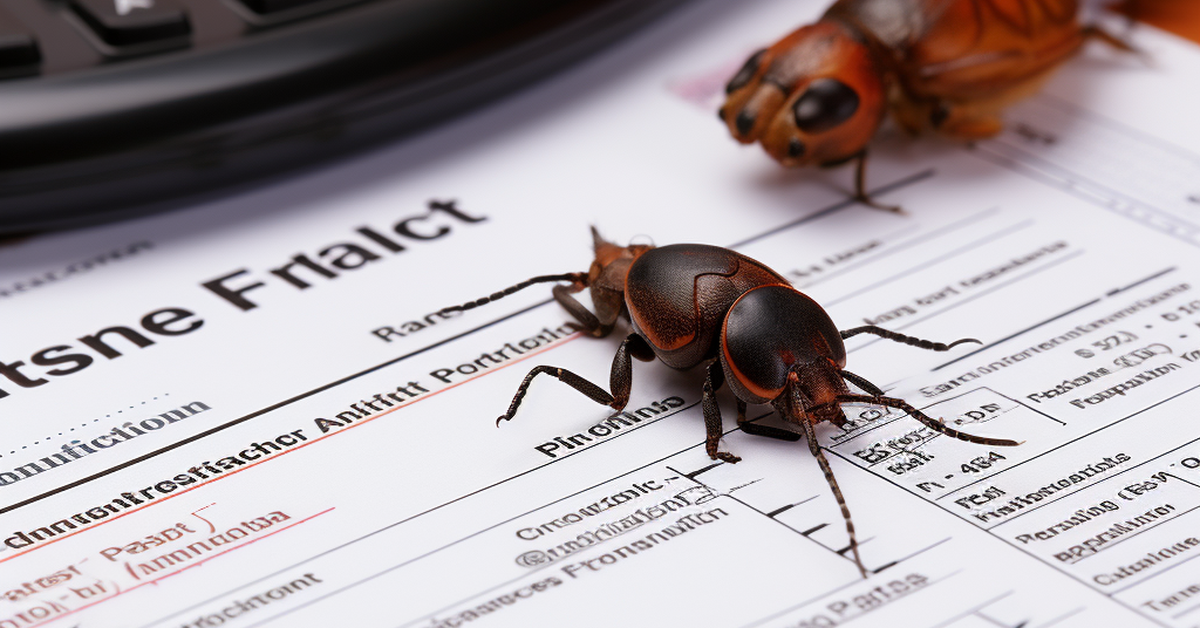
Regulations on Pesticide Application
When it comes to using pesticides, it’s not a free-for-all. There are rules you’ve got to follow, and they’re there for a good reason. You see, slapping a label on a pesticide isn’t just for show; it’s the law. And you can’t just grab the heavy-duty stuff off the shelf either. Some pesticides are for the pros only, and they’re called restricted use pesticides.
Now, you can’t go storing these chemicals next to your cereal boxes. There are guidelines for keeping them safe and sound, and when it’s time to say goodbye, you better dispose of them the right way. It’s not just about keeping your hands clean, it’s about making sure the little critters that weren’t on your hit list stay safe too.
- Stick to the label directions like glue
- Keep restricted goodies under lock and key
- Store and toss chemicals by the book
- Mind the bees and the birds, won’t you?
Training on Handling Chemicals
Ever heard of the Worker Protection Standard (WPS)? If you’re dishing out chemicals, you better have. It’s like school for pesticide handlers. And don’t even think about spraying without strapping on your Personal Protective Equipment (PPE). It’s your shield against the nasty stuff. Got into a pickle with a pesticide? You need a game plan for that, pronto.
- Suit up with the right gear
- Know your WPS ABCs
- Have an “oopsie” procedure ready
Environmental Impact Considerations
We’ve got one planet, folks. So when you’re dealing with pests, spare a thought for Mother Nature. Got a spray-happy finger? You might be messing with some endangered critters. And your chemical concoction could be making a beeline for the nearest stream. That’s a no-go. Enter Integrated Pest Management (IPM). It’s like the smarter, kinder way to kick pests to the curb.
- Watch out for those endangered species
- Keep the fish swimming, not swimming in it
- Smart pest control? That’s IPM for you
Now, if you want the nitty-gritty on all this, I’ve got just the thing. This PDF lays it all out.
Pesticide Application: A Quick Peek at the Rules
| What You Need to Know | Why It Matters |
|---|---|
| Label Literacy | Keeps you legal and safe |
| Restricted Use Pesticides | Not for the average Joe |
| Proper Storage & Disposal | Environmentally friendly |
| Non-Target Species Safety | Because every life is precious |
In our corner of the world, we at Sacramento Pest Prevention take these rules to heart. We’re your friendly neighborhood pest control squad in Sacramento, California. Our experts are all about getting rid of pests without stepping on Mother Nature’s toes. Need a hand? Give us a ring for a free consultation.
As we wrap up this chat on pesticides and chemicals, let’s not forget what’s up ahead. Keeping in line with all these rules is one thing, but what happens when someone steps out of line? There’s a whole system in place to make sure everyone plays fair—think fines, inspections, the whole shebang. It’s all about making sure that, at the end of the day, we’re using pesticides responsibly. And that’s something we take seriously every day.
Compliance and Enforcement in Pest Control
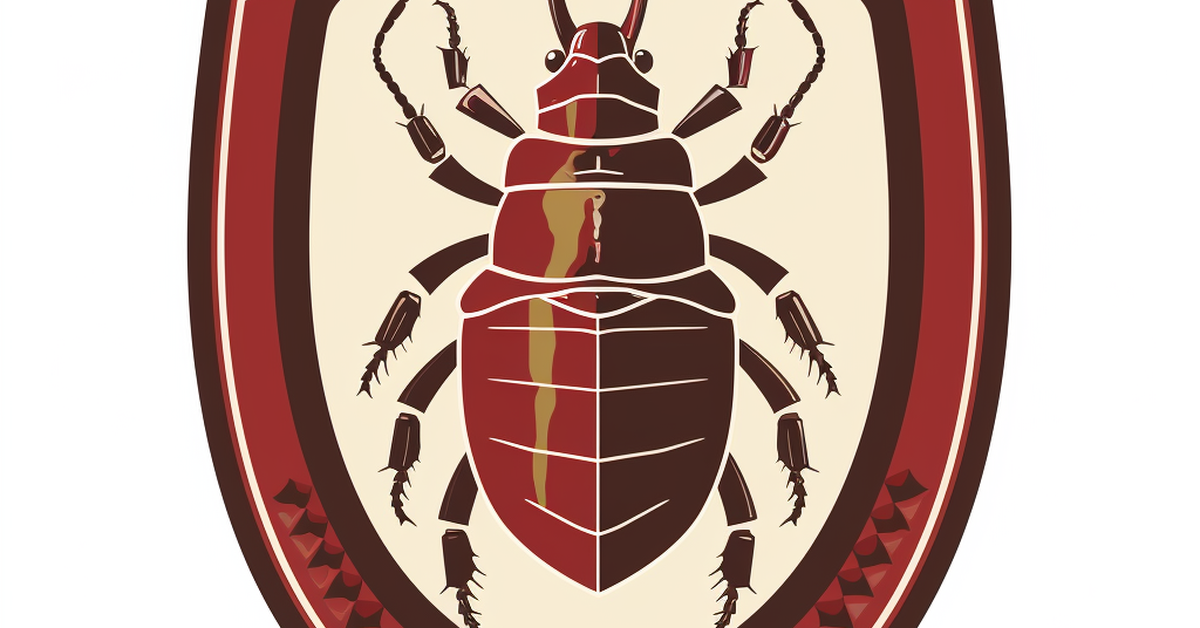
Navigating the maze of pest control laws can be as tricky as evading a crafty roach. In Sacramento and beyond, sticking to rules and fines is a must for anyone in the bug-busting biz. Let’s jump right in and break down what you need to stay on the right side of the law.
Inspection and Auditing Processes
Think of these as your pest control check-ups. Officials might pop by for a routine look-see or a surprise visit to ensure you’re not cutting any corners.
- Routine inspections keep everyone on their toes, ensuring that pest control practices are up to snuff.
- Spot-checks can happen anytime, targeting any part of your pest control operations.
- Record audits go through your paperwork with a fine-tooth comb, so keep those documents tidy.
For anyone in the pest control game, it’s crucial to know that slipping up on these inspections can lead to some serious headaches. Missed spots or shoddy documentation? That’s asking for trouble. So, keep your practices sharp and your records sharper.
Penalties and Legal Consequences
Mess up, and the consequences can sting worse than a wasp. Here’s the lowdown on what could happen if you skip a beat:
- Fines and citations might hit your wallet hard. Think twice before you skimp on standards.
- License suspension or revocation means you’re out of the game, temporarily or for good.
- Criminal charges are rare but possible for the worst offenses.
| Violation Type | Potential Consequence |
|---|---|
| Minor Infraction | Warning or Small Fine |
| Documentation Issues | Larger Fine, Mandatory Training |
| Severe Non-Compliance | License Suspension, Legal Action |
| Repeated Violations | License Revocation, Criminal Charges |
Remember, these aren’t just slaps on the wrist. We’re talking about protecting homes and businesses from pests, and the law takes that seriously.
Dispute Resolution and Appeals
If you reckon there’s been a mistake, you’ve got options. Contesting a violation involves a few steps:
- How to contest a violation: You’ve got to speak up and file a complaint if you think an inspection got it wrong.
- Administrative hearings and processes: This is where you make your case, backed up by all your evidence.
- Legal representation and rights: Bring in the big guns if you need to. A good lawyer can be worth their weight in gold.
Every pest control pro should know their rights. If you’re caught in a tangle with the law, understanding how to fight your corner is key.
Keeping homes clear of pesky intruders is our jam at Sacramento Pest Control. We’ve been doing this for over 30 years, and we know how to steer clear of the legal traps while providing top-drawer service. If you’re wrestling with a critter crisis, give us a shout at (916) 520-8894, and let’s talk about making your space a no-pest zone. We’ve got your back with a free consultation and a plan tailored just for you.
Next up, we’re going to tackle a topic that’s just as vital as sticking to the rules: protecting the health of you and your community. Stay tuned for ways to keep both pests and health risks at bay, ensuring your home is safe and sound.
Public Health and Consumer Protection
When it comes to Pest Control Legislation and Regulations, safety is key. Pests pose real threats to our well-being. They can spread diseases and cause property damage. That’s where rules and possible fines come into play. They ensure our community stays safe. Let’s look at how this all works.
Protecting Public Health Through Regulations
Pests aren’t just a nuisance; they can seriously harm our health. That’s why there are laws to keep both pests and the chemicals used to fight them in check. We’re talking about rats that carry diseases or bees that can cause allergic reactions. The goal? Keep everyone safe. Here’s how they do it:
- Health implications of pests and pesticides are no joke. Laws ensure that harmful chemicals used in pest control are handled safely.
- Regulations exist to minimize public exposure to these chemicals. We want to control pests without putting people at risk.
- Education campaigns for consumers are part of the mix. They help us understand the risks and how to avoid them.
Pest Control in Sensitive Environments
Some places need extra care. Think schools and hospitals. In these spots, strict protocols are a must. Here’s the rundown:
- Sensitive areas like dining spots or where we care for the sick require special pest control methods.
- Notification requirements mean people get a heads-up before any treatments are done.
Consumer Rights and Industry Transparency
It’s not just about keeping pests at bay. It’s also about knowing what’s happening. Laws guarantee that:
- Right to Know laws let us access info on the chemicals used.
- Labeling requirements tell us exactly what’s in the products.
- Consumer complaints and redress systems are in place if things go wrong.
So, what happens if these rules get ignored? Fines can be hefty. We’re talking up to $25,000 for serious violations. It’s all about keeping businesses in line and people safe.
Sacramento Pest Prevention is all about sticking to these rules. We’ve been doing this for over 30 years. Our team is fully trained to handle your pest problems safely and effectively. We respect your rights and privacy while getting the job done right.
Now, let’s switch gears for a sec. Imagine a world where every country has the same approach to pest control. It’s not quite the case, but some basic principles are shared worldwide. This sets the stage for a broader conversation about how different places tackle pest control on the global stage.
International Perspectives on Pest Control Regulation
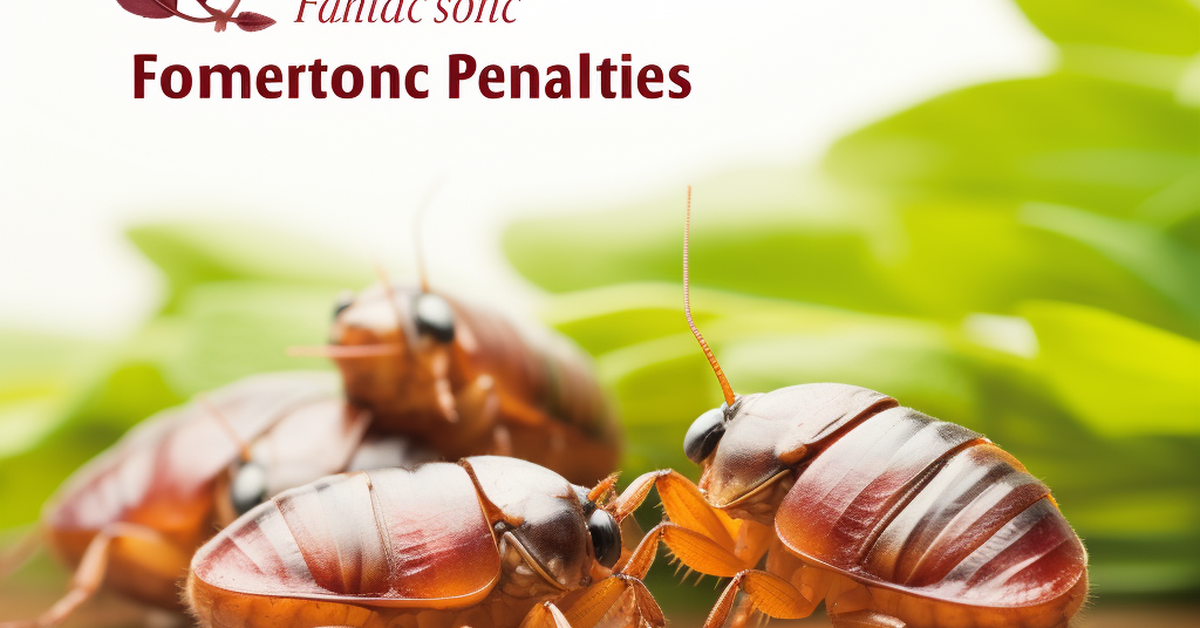
When you think about keeping your home or business pest-free, you may not consider how different countries tackle this issue. But it turns out, there’s quite a spectrum when it comes to pest control regulation around the globe. Let’s unpack these differences and see what we can learn from them.
Comparing Global Pest Control Policies
Pest control laws vary from one country to another, each with its own set of rules. For instance, what’s banned in one place might be the go-to solution in another. When we look at international best practices, we find common ground in safety and effectiveness. But it’s the global agreements, like those that regulate pesticide use, that help countries work together to manage pests.
The Impact of Trade on Pest Control Regulations
Trade plays a big role in pest control. After all, no one wants to import a new pest along with their goods! Countries have strict rules about pesticides in imports and exports, and they use quarantine laws to prevent invasive species from hitching a ride. These regulations need to align to keep trade running smoothly, which is easier said than done.
Challenges in Global Pest Management
Different countries face different pests, and what works in one place might not cut it in another. Not everyone has the same access to pest control resources, either. And let’s not forget the tug-of-war between keeping trade flowing and protecting the environment. It’s a delicate balance, and one that requires constant attention.
Let’s look at the stats:
- Total number of countries with specific pesticide bans: Over 160
- Percentage of countries participating in global pest management agreements: Around 75%
- Ratio of developing to developed countries facing major pest control challenges: 3:1
Now, imagine you’re part of Sacramento Pest Prevention, your go-to pest control heroes in Sacramento. You know that keeping up with these regulations is key to providing top-notch service. And that’s just what we do. Our crew of experts is not only ready to tackle any pest problem you’ve got but also stays ahead of the curve when it comes to regulations.
So, whether you’re dealing with a termite terror or a flea fiasco, we’ve got your back with the latest and safest methods. And if you’re curious about how we stay on top of all this regulation stuff, just give us a shout at (916) 520-8894. We’re always here to chat and keep your space pest-free.
Conclusion: Staying Ahead of Pest Control Legislation
As a proud member of Sacramento Pest Control, I’ve seen firsthand how vital it is to keep up with the latest in pest control law. Every day, we’re on our toes, learning new stuff to make sure we’re doing right by our customers and staying within the rules. It’s not just about spraying and leaving; it’s about knowing the ins and outs of the laws that keep us and our community safe. We’re always chatting with the big brains in professional circles and keeping our nose in the latest guides.
But hey, it’s not just a one-person show. We all have a part to play in shaping the laws that affect our homes and businesses. You can bet we’re using our voice to make sure the future of pest control is smart and safe for everyone. So if you’ve got a minute, give us a ring at (916) 520-8894. Let’s chat about how we can help you and how we can all work together to keep ahead of the game.
Key Takeaway: Staying up-to-date with pest control legislation isn’t just our job—it’s our passion. We’re committed to continuous learning and active engagement in the legislative process, ensuring the best outcomes for our clients and our industry.
So, what’s the next step for you? Take action! If pests are bugging you, don’t wait for them to become roomies. Give us a shout at (916) 520-8894. Trust me, our squad of bug-busting experts has got the smarts and the tools to get your space critter-free and keep it that way. Let’s make your pest problem history. Call us now!
Frequently Asked Questions about Pest Control Legislation and Regulations
What is pest control legislation and why is it important?
Pest control legislation refers to the laws and regulations that govern the management and control of pests to protect public health, agriculture, and the environment. This legislation is important because it ensures that pest control measures are carried out safely, effectively, and in an environmentally responsible manner.
Who is responsible for regulating pest control practices?
Regulation of pest control practices is typically the responsibility of multiple government agencies at the federal, state, and local levels. In the United States, for example, the Environmental Protection Agency (EPA) is a key federal agency regulating the use of pesticides, while state departments of agriculture and local health departments may also have their own regulations and enforcement mechanisms.
What are some common regulations related to pest control?
Common regulations related to pest control may include licensing and certification requirements for pest control professionals, restrictions on the use and sale of certain pesticides, guidelines for safe application and disposal of pesticides, and measures to protect non-target species and the environment.
How do licensing and certification work in the pest control industry?
Licensing and certification for pest control professionals usually involve passing an exam that tests knowledge of pest management practices, pesticide application, and relevant laws and regulations. Continuing education is often required to maintain certification and stay up-to-date with industry changes and new regulations.
Are homeowners required to follow pest control regulations?
Yes, homeowners are required to follow pest control regulations, particularly those related to the use and disposal of over-the-counter pesticides. While regulations may be less stringent for non-professional use, it’s important for homeowners to comply with label instructions and local laws to ensure safety and effectiveness.
What are the penalties for violating pest control regulations?
Penalties for violating pest control regulations can range from fines to revocation of licenses, and in severe cases, criminal charges. The severity of the penalty typically depends on the nature of the offense, the harm caused, and whether it was a repeat violation.
How do pest control regulations differ between countries?
Pest control regulations differ between countries based on local environmental conditions, pest pressures, and public health concerns. Some countries may have stricter regulations on pesticide use or more rigorous licensing processes than others. International organizations, like the World Health Organization (WHO), may provide guidelines, but individual countries tailor their regulations to their specific needs.
Can pest control regulations affect the use of DIY pest control products?
Yes, pest control regulations can affect the availability and use of DIY pest control products. Regulations may restrict certain active ingredients, dictate where and how products can be applied, and require specific labeling to ensure consumer safety. Always read and follow the label instructions on any DIY product.
How are pests classified in the context of pest control regulations?
Pests are generally classified based on the threat they pose to health, agriculture, or property. This classification can influence the urgency and methods of control deemed acceptable by regulatory bodies. Some pests may be considered of high priority due to their potential to spread disease or cause significant economic damage.
How do I stay informed about changes in pest control regulations?
To stay informed about changes in pest control regulations, you can subscribe to updates from relevant regulatory agencies, join professional pest control associations, attend industry conferences, and participate in continuing education opportunities. Staying connected with these resources ensures that you remain compliant with current laws and best practices.
